The COVID-19 pandemic has taken its toll on automotive retailers across the board.
COSTS
Dealerships have had to pay out thousands of pounds on essential personal protective equipment (PPE) for staff and customers and for the sanitisation of their facilities and vehicles.
They have also spent vast sums on implementing new digital platforms to sell their vehicles, as well as incurring the expense of providing more ‘click and collect/deliver’ services.
Another ‘hidden’ cost has been the effect of the pandemic on staff morale and mental wellbeing.
To make their premises COVID-safe, dealers have had to buy in everything from face masks, screens, hand sanitisers and disinfectant to steering wheel and seat covers. They have also had to invest heavily in employee safety training.
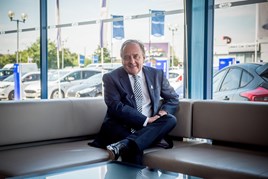 “We have spent north of £500,000 on PPE,” says Stuart Foulds, president and chief executive of TrustFord. “We have also had to completely rearrange our showrooms and reception areas for social distancing.”
“We have spent north of £500,000 on PPE,” says Stuart Foulds, president and chief executive of TrustFord. “We have also had to completely rearrange our showrooms and reception areas for social distancing.”
John Clark Motor Group has also spent more than £350,000 on PPE, not including signage, for both NHS worker vehicles and its own use. That has included seat covers, floor mats, hand cleansing gels and alcohol wipes and sprays from multiple sources.
The group has also provided all its delivery drivers with safety packs detailing protocols for full sanitisation of vehicles at collection and delivery. In addition, it has invested in 20,000 Tunap air-con sanitisation bombs, which it has put into every vehicle handled.
 “We have gone to great lengths to consider every possible angle,” says group managing director Chris Clark. “That included every single touchpoint and customer interaction, to ensure we were 100% COVID safe.”
“We have gone to great lengths to consider every possible angle,” says group managing director Chris Clark. “That included every single touchpoint and customer interaction, to ensure we were 100% COVID safe.”
Cambria Automobiles has gone one step further, implementing voluntary lateral flow testing for staff. And it is seeing the benefits.
“Although it came at a significant cost, it has been a huge benefit in stopping the spread of the virus,” says chief executive Mark Lavery. “It also demonstrates that we are COVID secure.”
Marshall Motor Holdings spent in excess of a “five-figure sum” on PPE in the first half of 2020 alone, according to chief executive Daksh Gupta. He added that the group has also invested significantly in a reactivation plan covering its key safety protocols, which all employees are required to learn and score a pass mark of 100%.
“That has sent out a powerful message that the health and safety of customers and colleagues is our No 1 priority,” says Gupta. “We have matched that e-learning with investment in PPE, screens and the like.”
Foreseeing the switch to online, Marshalls also spent big on promoting its digital offering. It has backed this up with a substantial investment in its communication platforms too.
Working remotely or being furloughed has put an added strain on employees also. The main challenge has been to try and keep staff motivated and protect their mental wellbeing.
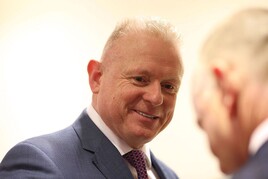 “It has undoubtedly taken a mental toll,” says Peter Smyth, director at Swansway. “It is hard to quantify, but it has certainly affected people in a negative way.”
“It has undoubtedly taken a mental toll,” says Peter Smyth, director at Swansway. “It is hard to quantify, but it has certainly affected people in a negative way.”
BENEFITS
Despite all the downsides of the pandemic, some invaluable lessons have been learned and many dealerships have come out of it leaner and stronger as a result.
The biggest savings made by dealers were through the Government’s business rates holiday and the furlough scheme.
They have also received some discounts from suppliers, most notably Auto Trader, which offered free classified advertising during lockdown.
Other benefits have included reduced travel expenses for meetings and site visits, while CEOs and boards of directors have also had more time to plan and strategise.
Using video conferencing on platforms such as Zoom or Microsoft Teams has enabled dealers to cut down on travel costs and the time employees spend on the road. That has enabled them to focus more on their core role.
“As well as saving time spent in the vehicle, it has also saved on fuel and wear and tear,” says Lavery. “All of that has made us more efficient both from a sales and technical perspective.”
Rather than monthly operations board meetings, Marshalls now holds them every week on Teams. The executive committee also meets for three hours in video conference every Tuesday.
Swansway’s board has also started daily Zoom meetings and intends to continue them after the pandemic. In addition, it will reduce its weekly meetings at head office to one a month when fully reopened.
In terms of the relaxation of business rates, Swansway has saved more than £1 million per year. It has also benefitted from putting 800 of its 1,100 staff on furlough at one stage last year.
“Another significant cost is the amount we spend on tea, coffee and biscuits for customers, but due to the pandemic we weren’t able to offer them,” says Smyth.
“So that was a big saving for us.
“It has also afforded us more time to just sit down and strategise, thinking about our business model moving forward. That would never have happened before because we were so focused on our day-to-day operations.”
Cambria Automobiles has also benefited from the business rates holiday, saving £300,000 per month. Another significant saving came from furloughing 83% of its employees in the first lockdown.
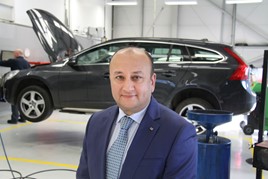 “Credit to the Government for bringing in the furlough scheme,” says Gupta, who had to furlough more than 90% of Marshall’s staff. “It has saved hundreds of thousands of jobs.”
“Credit to the Government for bringing in the furlough scheme,” says Gupta, who had to furlough more than 90% of Marshall’s staff. “It has saved hundreds of thousands of jobs.”
Some landlords have also put rents on hold, which has greatly benefitted large dealers such as TrustFord. Additionally, many businesses have been assisted by the Government’s bounce-back loans and grant schemes.
Despite suffering financially, some suppliers have been able to offer discounts or more favourable terms. Manufacturers have also helped by reducing targets and guaranteeing sales bonuses.
John Clark Motor Group was able to negotiate deferred payments with suppliers, who include Dealerweb, enquiryMAX and Pinnacle. The group also benefited from concessions offered by Auto Trader during the lockdowns.
Author: Alex Wright

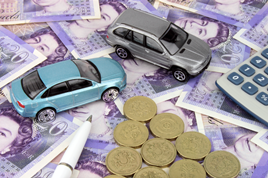
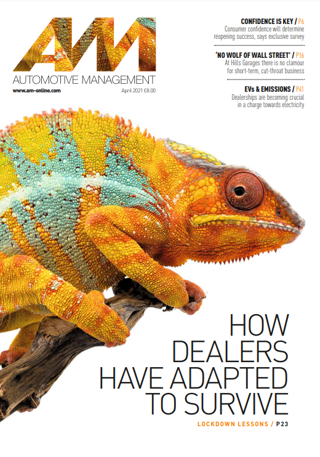
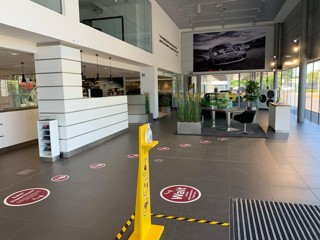
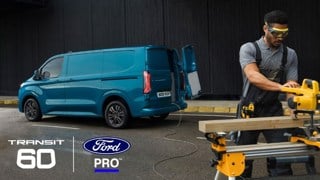
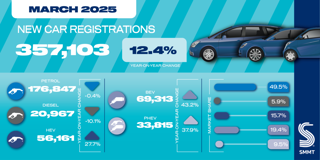












Login to comment
Comments
No comments have been made yet.